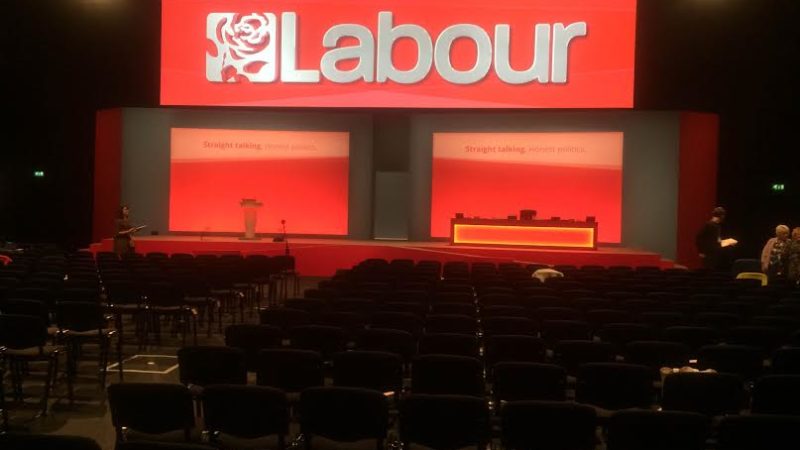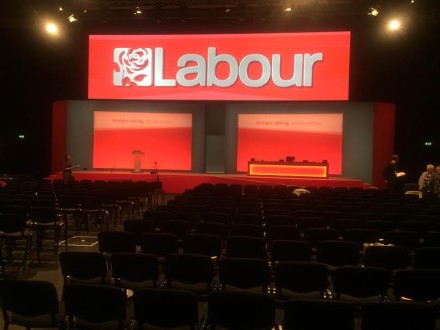

Despite the claims to radicalism of Labour’s new leadership it is avoiding the one big question confronting it since Labour’s devastating defeat in May. What does Labour stand for when it is no longer the party of the working class?
Some in the party see more ambitious policies as the answer. We should be bolder in our redistribution, devolve more power, and reform our public services. But this concentration on policy is symptomatic of the party’s crisis: it understands its politics have failed but believes the solution is to do more of the same better.
The Labour Party has become detached from the working class that was the historical carrier of its politics. This class has changed and an increasing number of those who are part of it no longer recognise Labour as their party. What has changed and what it does not recognise is a culture.
By culture I mean a way of life, its moral values, traditions, language and customs, and the institutions that pass on this inheritance. The breaking apart of a culture is the loss of meaningful life – people feel that something has been taken from their lives that they will never get back. In a more limited sense large numbers of people lose their traditional political loyalties. The class no longer recognises its party and the party no longer recognises its class. It is the idea of recognition as a mutual and reciprocal allegiance.
The industrial working class that created the Labour party has gone. Both were formed in an industrial economy of mass production and mass consumption, which has been transformed by the rise of the services sector, globalization and de-industrialisation. The institutions of mutual self help that workers created to defend themselves against the power of capital have either disappeared or been considerably weakened.
The Labour Party as an organization survives but the culture and the symbols that once gave it meaning have been significantly diminished. It is increasingly a party of administrators and managers. Its membership is drawn from the public sector and the metropolitan middle classes, while it’s connection to the labour interest in the private sector is minimal.
The success of New Labour was only a temporary reprieve from political decay. What had always been a minority current of social liberal progressivism within Labour became dominant. And with the increasing number of higher educated and metropolitan middle class members there was a shift in the party toward more universalist and abstract progressive values such as equality, diversity, and sustainability.
This combination of liberal progressive politics and universal values has contributed to the growing cultural isolation of Labour in England and Wales. The majority of the population tends to be pragmatic in their voting habits or have a small c conservative disposition. They tend to hold values that are intuitively about reinforcing the social norms and identities of their culture, their family, their work, and their country. These more conservative values were once the bedrock of the old labour movement.
People are guided by their moral intuitions, which are shaped by their culture. Jonathan Haidt in his book, The Righteous Mind identifies six: care, fairness, liberty, loyalty, authority and sanctity. (You can watch his TED talk here.) Progressive politics is focused on care and fairness. However, its notion of fairness is distributional justice based on need in contrast to the popular view that justice is reciprocal and based on contribution. It has little to say about loyalty. It is ambivalent about both liberty and authority and sometimes contemptuous and intolerant of sanctity.
Haidt argues that although liberal progressives pride themselves on being open-minded they are in fact limited in their moral responses. And while they can tend to be judgmental of people with a conservative disposition, the latter tend to embrace a wider range of moral intuitions.
This limitation is evident in progressive politics. It has left Labour unable to speak in any meaningful way about a good life. It lacks a moral vision of a better society. It has avoided embracing the family and relationships. It has no language of belonging. When faced with issues of culture and identity it talks about economics. It turned the word aspiration into an instrumentalised form of self-interested investment in personal capital. It talks a lot about change but not much about stability, continuity and security. It tends to concentrate on the future and so neglects the past and present. When progressivism combines social and economic liberalism, progressivism dissolves the moral capital and institutions that constrain selfish individualism.
Most individuals want both change and stability. They seek novelty and yearn for familiarity. They pursue both freedom and want security. They need community and value their individuality. Their opinions range across a continuum. They can be for both one thing and another: anti –immigration and pro-migrant, financially conservative and economically radical, anti-bank and pro-business, anti-trade union and pro-worker. People are paradoxical and so politics needs to be about ‘both and’ in order to negotiate a common ground out of people’s differences. But Labour has become about ‘either or’. It is for the radical and against the conservative and so it not only excludes people, it also only ever speaks to one part of most individuals.
The election of Jeremy Corbyn is a reaction to the failure of New Labour’s progressivism. It is a belief that a left-wing version will provide redemption from the cultural emptiness of the present and the political failures of the past. This is Labour’s tragedy. It searches for political recovery in the purity of its own exclusivist, progressive culture with its limited moral range. It simply intensifies its momentum toward national political irrelevance.
The historical trend points to Labour becoming a residualised, metropolitan party of the public sector, middle class liberal progressives, and a dwindling number of BAME groups. This fate is not inevitable. But Labour has to be willing to open itself up to a dialogue, not about this or that policy, but one between the two dispositions of radical and conservative. Labour has polarised them, but it is in the paradox of the two that it will find a way of speaking to the full range of people’s moral intuitions. When it has this language it will begin reconnecting Labour to the common life and culture of the country.
Jonathan Rutherford was a member of the Independent Inquiry into why Labour lost. He also worked on the party’s policy review 2012-14.




More from LabourList
Turning the page? Labour’s recovery in the polls show a path to 2029 victory
Restoration announce recommendations for NEC candidates
‘Factionalism at the top is weakening Labour – and handing a gift to Reform’